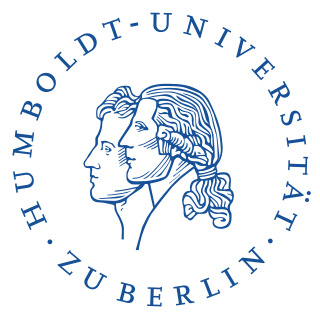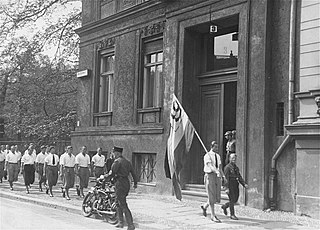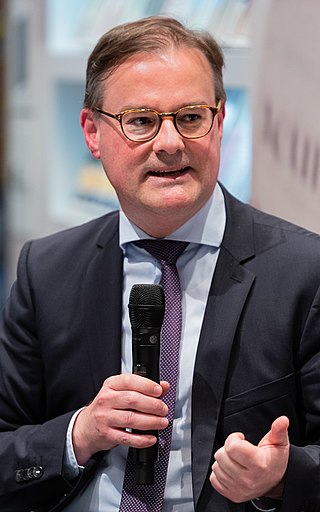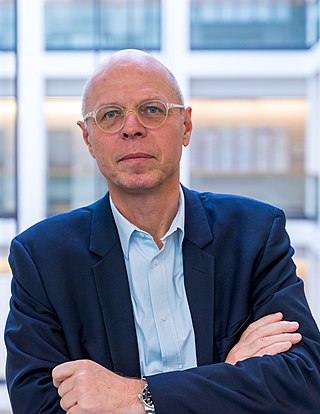Erwin J. Haeberle (30 March 1936 – 1 October 2021) was a German social scientist and sexologist.
Contents

Erwin J. Haeberle (30 March 1936 – 1 October 2021) was a German social scientist and sexologist.

Haeberle was born on 30 March 1936 in Dortmund, Germany and died in Freiburg, Germany. From 1956 to 1963 he studied drama, German, English literature, and French literature at the University of Cologne, University of Freiburg, University of Glasgow, and University of Heidelberg. He received a M.A. in 1964 from Cornell and a Ph.D. in 1966 from Heidelberg. Haeberle was a postdoctoral fellow at Yale and U.C. Berkeley from 1966–1972. He earned an Ed. D. in sexology from the Institute for Advanced Study of Human Sexuality in 1977, where he was a professor from 1977–1988. [1] During this tenure, he also was a research associate at the Kinsey Institute for Research in Sex, Gender and Reproduction of Indiana University from 1982–1984, a visiting professor in the medical school of the University of Kiel from 1983–1984, a distinguished visiting professor in the department of biology at San Francisco State University in 1984, and a visiting professor in the medical school of the University of Geneva from 1984–1985. He then moved on to Director of Information & Documentation at the AIDS Center of the Federal Health Office in Berlin from 1988–1994. [2]
Haeberle was a founding member and first Secretary General of the European Federation of Sexology in the early 1990s. [3] From 1991–1994 Haeberle was a visiting professor at Humboldt University and from 1994–2001 he was founder and director of the Archive of Sexology at the Robert Koch Institute. [4] After his retirement from government service in 2001, he continued his work privately as director of the Magnus Hirschfeld Archive for Sexology, which he financed himself and which ran on the server of Humboldt University.
In January 2003, he put the world's first freely accessible course (MOOC) online. [5] In 2004 he presented it in Beijing's Great Hall of the People. Subsequently, it was, together with other courses, translated into Chinese. [1] Today, an entire "open access" curriculum of 6 courses (6 Semesters) on sexual health is available in 7 languages: English, Spanish, Portuguese, Chinese (both simplified and traditional), Russian, Czech, and Hungarian. Haeberle's online Archive now offers sexual health information in a total of 15 languages. In July 2013 he left the server of Humboldt University and continued on a private server of his own as Director of his still personally funded Archive for Sexology. Since October 2009, his print library and collections have been available as Haeberle-Hirschfeld Archive at the central library of Humboldt-University [6] In 2005, he joined the University of Hong Kong as an honorary professor, first at the Faculty of Medicine, then at the Family Institute. From 1986–2002 he was president of the German Society for Social-Scientific Sexuality Research. [7]

Sexology is the scientific study of human sexuality, including human sexual interests, behaviors, and functions. The term sexology does not generally refer to the non-scientific study of sexuality, such as social criticism.

Magnus Hirschfeld was a German physician and sexologist.

The Humboldt University of Berlin is a public research university in the central borough of Mitte in Berlin, Germany. It has been conferred the title of "University of Excellence" under the German Universities Excellence Initiative.

Bernhard Schlink is a German lawyer, academic, and novelist. He is best known for his novel The Reader, which was first published in 1995 and became an international bestseller. He won the 2014 Park Kyong-ni Prize.
Rolf Gindorf was a German sexologist. He was a member of Mensa. In 1971 he founded the German Society for Social-Scientific Sexuality Research.

The Institut für Sexualwissenschaft was an early private sexology research institute in Germany from 1919 to 1933. The name is variously translated as Institute of Sex Research, Institute of Sexology, Institute for Sexology or Institute for the Science of Sexuality. The Institute was a non-profit foundation situated in Tiergarten, Berlin. It was the first sexology research center in the world.

Iwan Bloch, also known as Ivan Bloch, was a German dermatologist, and psychiatrist, psychoanalyst born in Delmenhorst, Grand Ducal Oldenburg, Germany, and often called the first sexologist.
The German Society for Social-Scientific Sexuality Research is a sexuality research and counselling organization based in Düsseldorf, Germany. It is primarily devoted to sociological, behavioral, and cultural sexuality research.
Robert Thomas "Bob" Francoeur Ph.D., A.C.S. was an American biologist and sexologist.

Hans Joas is a German sociologist and social theorist.
William Granzig was an American sexologist.
Heinrich Kaan was a 19th-century physician known for his seminal contributions to early sexology. Different sources identify him as Ruthenian or as Russian. He was the personal physician to the Czar.

Jörn Leonhard is a historian and professor of Western European History at the History Department of the University of Freiburg since 2006. From 2007 to 2012, he was co-director of the School of History at the Freiburg Institute for Advanced Studies (FRIAS). His published works focus on the history of liberalism, nationalism, empires and wars. Leonhard has received several important research awards. His books “Die Büchse der Pandora” (2014) as well as “Der Überforderte Frieden” (2018) established him as an important representative in the research of global history.

Markus Gabriel is a German philosopher and author at the University of Bonn. In addition to his more specialized work, he has also written popular books about philosophical issues.

Gerhard Hirschfeld is a German historian and author. From 1989 to 2011, he was director of the Stuttgart-based Bibliothek für Zeitgeschichte / Library of Contemporary History, and has been a professor at the Institute of History of the University of Stuttgart since 1997. In 2016 he also became a visiting professor at the Institute for International Studies, University of Wuhan/China.

Klaus Michael Beier is a German physician, psychotherapist and sexologist. He is director of the Institute for sexology and sexual medicine at the Charité - Universitätsmedizin in Berlin.
Fawzi Boubia, born in 1948 in Khemisset, is a Moroccan intellectual.

Erwin Gohrbandt was a German surgeon and war criminal who participated in human experimentation at Dachau Concentration Camp. Gohrbandt served as vice president of the Berlin regional association of the German Red Cross. He was also a member of the German Olympic Society. In 1950-51 he was chairman of the Berlin Surgical Society.